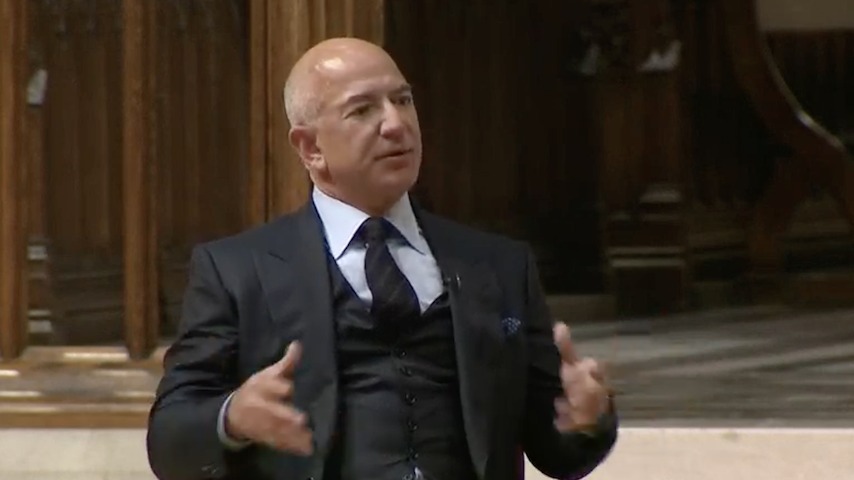How Stupid Does Jeff Bezos Think We Are?
Photo via C-Span screenshot
On Monday, NPR reported that the Washington Post was hemorrhaging subscribers. Since its disastrous and disastrously rolled out decision not to endorse a presidential candidate at the end of last week, more than 200,000 people had canceled, representing around eight percent of the paper’s entire subscriber base, print and digital included. Those numbers will probably rise.
[Update: They have risen. The latest number is 25 percent higher, at 250,000 cancellations.]
The opinion page writers at the Post did their best to fight back, publishing a collective objection to the non-endorsement as well as multiple individually bylined pieces explaining why it was the wrong move. Several opinion staffers resigned.
And then, since it is apparently a requirement when your bank account balance reaches 10 digits to become the whiniest little baby imaginable, Post owner Jeff Bezos decided it was time to respond.
-

-

-

-

-

-

-

-

-

-

-

-

-

-

-

-

-

-

-

-

-

-

-

-

-

-

-

-

-

-

-

-

-

-

-

-

-

-

-

-

-

-

-

-

-

-

-

-

-

-

-

-

-

-

-

-

-

-

-

-

-

-

-

-

-

-

-

-

-

-

-

-

-

-

-

-

-

-

-

-

-

-

-

-

-

-

-

-

-

-

-

-

-

-

-

-

-

-

-

-

-

-

-

-

-

-

-

-












































































































